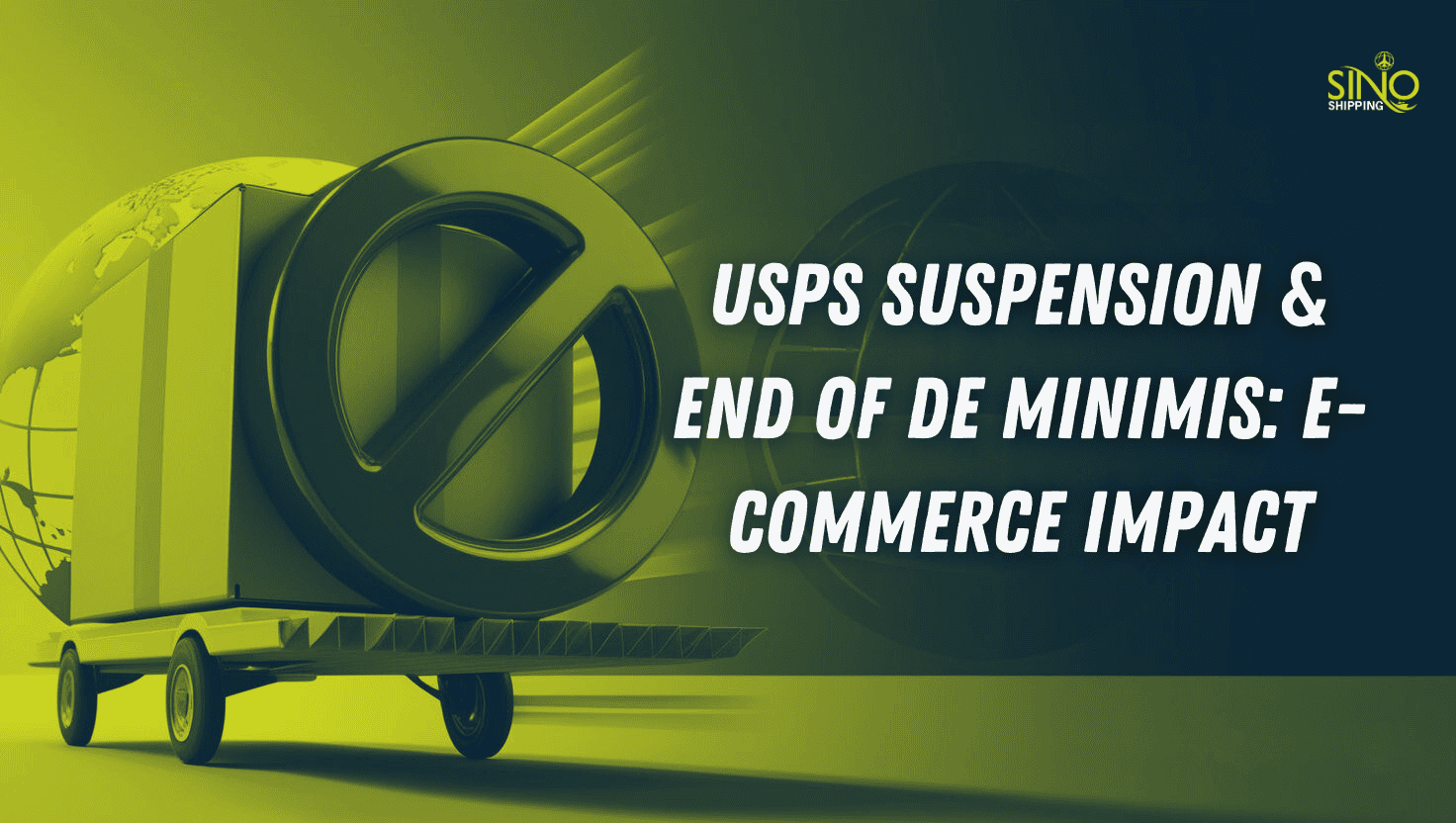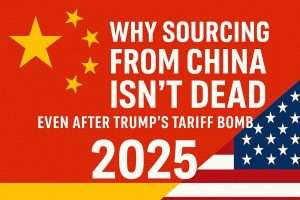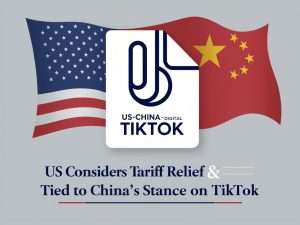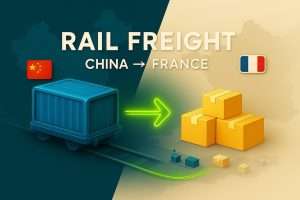In a move that is shaking up the world of international trade, the United States Postal Service (USPS) has recently suspended the acceptance of shipments from China and Hong Kong. Simultaneously, the longstanding “de minimis” exemption—which allowed products under $800 to enter the U.S. without taxes—has been eliminated, replaced by a 10% tariff on these imports. This change is not just a policy update; it has tangible implications for businesses and consumers alike. In this article, HAI International Holding, a leader in international logistics, offers a detailed analysis of these developments, supported by recent data, and provides practical advice to help you navigate this evolving landscape—all while acknowledging the real-world impacts on people and communities.
Key Facts at a Glance
Understanding the essentials is crucial. Here are the core points:
- What?
The USPS has suspended shipments from China and Hong Kong. - What Else?
The “de minimis” exemption for items valued under $800 has been removed, and a 10% tariff is now applied to every shipment from these regions. - Who Is Affected?
Global e-commerce platforms, including giants like Amazon, as well as Chinese companies such as Shein and Temu, are directly impacted. - Why It Matters:
These regulatory changes result in higher import costs, extended delivery times, and force businesses to re-evaluate their logistics strategies. This shift affects not only company bottom lines but also consumer budgets and expectations.
Context and Regulatory Changes
The “De Minimis” Exemption: A Pillar of Low-Cost E-commerce
For decades, the “de minimis” exemption has been pivotal for international trade:
- Historical Impact:
- Over 1.3 billion packages were imported under this exemption in recent years, helping millions of small businesses flourish.
- The exemption allowed companies to keep prices low by avoiding taxes on goods valued under $800.
- Key Advantages:
- Enhanced Price Competitiveness: Businesses could offer products at attractive prices, fostering consumer trust and driving global trade.
- Simplified Logistics: Fewer customs formalities meant faster shipping and a smoother supply chain.
The New Regulatory Environment
Now, with the new measures in place:
- Cost Implications:
- Every shipment from China and Hong Kong incurs an extra 10% tariff. For example, if an item costs $10, it might now retail for $11 or more.
- Recent estimates suggest that low-value imports from these regions grew from $5.3 billion in 2018 to over $66 billion in 2023—a clear indicator of how many businesses relied on this exemption.
- Customs and Inspection Changes:
- Enhanced customs controls mean each package is inspected individually, leading to delays that could add several days to delivery times.
- Some industry analysts predict delays could increase by 20-30%, affecting customer satisfaction.
These changes are prompting businesses to reassess their entire logistics models, seeking innovative solutions to minimize disruptions while continuing to serve their customers effectively.
Impact on E-commerce Players
Challenges for Chinese Platforms: Shein and Temu
For companies like Shein and Temu, which have built their success on ultra-competitive pricing, the changes are significant:
- Rising Costs and Narrower Margins:
- The additional 10% tariff directly increases the cost of goods sold. For instance, a product formerly sold at $10 may now approach $11, eroding already thin margins.
- Some reports indicate that over 30% of daily imported packages under the old rules were from platforms like Shein and Temu—highlighting the scale of the challenge.
- Delays Affecting Customer Experience:
- Longer customs processing times may lead to delivery delays, which could hurt brand loyalty.
- Consumer surveys in the past year have shown that delivery speed is a top priority for over 70% of online shoppers.
- Adaptive Measures:
- Local Warehousing: Temu is investing heavily in U.S.-based distribution centers to store inventory locally, cutting down on both tariffs and transit times.
- Diversified Supply Chains: Shein is exploring alternative sourcing from countries like Brazil or Turkey and partnering with local distributors, aiming to reduce dependency on direct Chinese shipments.
Amazon: Leveraging Domestic Strengths Amid External Challenges
Amazon stands in a different position:
- Robust Domestic Infrastructure:
- With over 175 fulfillment centers across the U.S., Amazon can quickly deliver products stored locally, mitigating some effects of the new tariff and customs delays.
- Third-Party Seller Considerations:
- Approximately 50% of Amazon’s top sellers depend on supply chains from China. These sellers face increased costs and longer shipping times, which could eventually reduce their competitiveness.
- Amazon’s internal logistics remain strong, but the company is actively working with third-party sellers to adopt more resilient supply chain practices.
Consequences for U.S. Consumers
The ripple effects extend to the end-user:
- Higher Retail Prices:
- Consumers can expect price increases as importers pass on the extra 10% tariff. Budget shoppers might see noticeable changes, particularly in categories like electronics, apparel, and accessories.
- Extended Delivery Times:
- Enhanced customs checks mean that the speedy delivery many have come to expect may now be delayed, potentially impacting holiday seasons and time-sensitive purchases.
- Reduced Product Variety:
- With some sellers opting to cut back on lower-margin, low-cost items, consumers might notice a decline in product variety, especially in fast fashion and small electronics.
Human Connection:
Behind every statistic are real consumers facing longer wait times for a birthday gift or a necessary gadget. Many shoppers express frustration over unexpected delays, and small businesses worry about losing customer trust. As we navigate these changes, it’s crucial to remember that every policy shift impacts lives and livelihoods—making effective, empathetic logistics solutions all the more important.
HAI International Holding’s Recommendations
Drawing on years of experience and a deep understanding of international logistics, HAI International Holding offers these actionable strategies to help businesses not only adapt but thrive:
Optimize Logistics Flows
- Consolidate Shipments:
Combining multiple orders into one shipment can reduce the number of packages subject to individual inspections, lowering overall costs and speeding up processing. - Streamline Transit Routes:
Reassessing shipping routes and exploring alternative logistics networks can help cut transit times and mitigate delays.
Invest in Local Warehousing
- Benefits of U.S.-Based Warehouses:
- Local storage reduces the need for repeated cross-border shipments.
- It can significantly lower the impact of tariffs once goods are imported and stored domestically.
- Companies that invest in local distribution centers have reported delivery time reductions of up to 40%.
Utilize Private Couriers
- Diversification of Shipping Methods:
- Engaging private carriers like FedEx, UPS, or DHL can offer more reliable and faster delivery options than standard USPS services.
- Private couriers typically have better tracking systems, which can improve communication and customer satisfaction.
Final Thoughts: Navigating the New E-commerce Landscape
The suspension of shipments by USPS from China and Hong Kong, along with the end of the “de minimis” exemption and the introduction of a 10% tariff, is reshaping the global e-commerce environment. For companies like Shein and Temu, these changes necessitate bold adaptations—whether through local warehousing or diversified supply chains—to remain competitive. Amazon leverages its formidable domestic infrastructure, yet even it faces challenges with third-party sellers affected by these shifts.
For U.S. consumers, the implications are clear: higher prices, longer delivery times, and potentially less variety in low-cost products. Yet, in this changing landscape, there is room for optimism. By embracing technology, planning proactively, and maintaining a human touch in all interactions, businesses can turn these challenges into opportunities for growth and improved customer relations.
At HAI International Holding, we understand that behind every statistic is a human story. Whether you’re a small business owner or a large enterprise, our commitment is to help you navigate these turbulent times with empathy, innovation, and expert guidance—ensuring that the future of e-commerce remains bright, resilient, and customer-focused.
What is the de minimis exemption?
The de minimis exemption is a customs provision that allowed products valued under $800 to be imported into the United States without incurring any duties or taxes. This policy played a crucial role in facilitating online commerce by significantly reducing the costs associated with importing low-cost products, thereby making them more accessible to consumers.
Why did USPS suspend the acceptance of shipments from China and Hong Kong?
The suspension by USPS is part of a broader initiative to strengthen customs controls and rebalance international trade. By eliminating the de minimis exemption and imposing a 10% tariff on shipments from China and Hong Kong, the authorities aim to better regulate the flow of imports and protect certain domestic industries. This measure is intended to ensure stricter compliance with customs regulations and to address trade imbalances.
What impact do these measures have on e-commerce platforms such as Shein, Temu, and Amazon?
These regulatory changes have a direct impact on international e-commerce platforms. Companies like Shein and Temu, which have historically benefited from the de minimis exemption, now face higher product costs due to the additional 10% tariff, as well as longer delivery times resulting from enhanced customs inspections. As a response, these companies are adapting their strategies by investing in U.S.-based warehouses and diversifying their supply chains to reduce dependency on direct imports from China. In contrast, Amazon leverages its extensive network of U.S. distribution centers to mitigate some of the delays; however, many of its third-party sellers, who rely heavily on Chinese supply chains, are also experiencing increased costs and extended shipping times.
Comment ces mesures affecteront-elles les consommateurs américains ?
Les consommateurs américains pourraient constater une augmentation des prix des produits importés, puisque les frais supplémentaires liés au tarif de 10 % sont souvent répercutés sur le prix final. De plus, les contrôles douaniers plus rigoureux engendreront des retards dans la livraison, ce qui pourra affecter l'expérience d'achat en ligne. Enfin, la réduction potentielle de l'offre de produits à bas coût, notamment dans des secteurs tels que la mode rapide et l'électronique, pourrait également être ressentie par les consommateurs.
How will these measures affect American consumers?
American consumers are likely to notice several changes as a result of these measures. The additional 10% tariff on imports will probably lead to higher retail prices, as importers pass on the increased costs to the end consumer. Moreover, the more rigorous customs inspections are expected to slow down the shipping process, resulting in longer delivery times. Consumers might also experience a reduction in the variety of low-cost products available on the market, particularly in sectors such as fast fashion and consumer electronics.
What solutions does HAI International Holding propose to help companies adapt to this new environment?
HAI International Holding recommends several strategic solutions to help businesses navigate these new challenges. Companies are encouraged to consolidate shipments in order to reduce the number of packages subject to individual inspections, which can lower both costs and delivery delays. Additionally, investing in local warehousing within the United States is advised, as it allows businesses to store products domestically, thereby avoiding repeated import tariffs and reducing transit times. HAI International Holding also suggests utilizing private carriers like FedEx, UPS, or DHL to achieve faster and more reliable delivery compared to standard USPS services. Furthermore, implementing advanced digital tracking systems can provide real-time monitoring of shipments, helping companies to proactively manage delays and ensure better coordination across their supply chains.
Are these measures temporary, or will they have a long-term impact?
Currently, the suspension of shipments by USPS and the elimination of the de minimis exemption are implemented as temporary measures aimed at enhancing customs control. However, these changes are likely to have long-term repercussions on international trade. As a result, businesses may be compelled to permanently adjust their logistics strategies and diversify their supply sources in order to remain competitive in an evolving global market.












